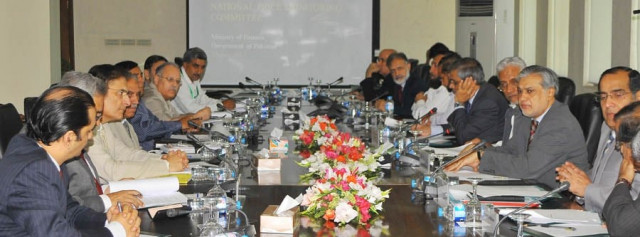Greeting Ramazan: Dar calls for a nationwide price control mechanism
District price control committees and ramazan bazaars to be activated.

Federal finance minister, Ishaq Dar presided over the meeting. PHOTO: Government of Pakistan website
Presiding over the 17th meeting of the National Price Monitoring Committee, Dar said that district price control committees would be established that would comprise of representatives from government bodies, consumers and producers.
The finance minister said that price hikes will be controlled by acting on the recommendations put forth by the committee.
Dar expressed regret at the fact that a mechanism to monitor prices could not be devised even after holding talks with the government for 45 days, and issued a call for making consumer protection laws functional.
The finance minister said that he looked forward to the cooperation of the provinces so that the price disparities amongst the provinces could also be monitored.
The committee reviewed the price trend of 28 selected items in the provinces and it was decided that the price of essential items will be fixed.
Dar said that surprise checks would be carried out to ensure the price list is adhered to and the provinces would be required to submit a weekly report to the finance ministry.
"Traders in Sindh would be warned against black-marketing, hoarding and profiteering," said the finance minister, adding that Food Department and Utility Stores Corporation would bring their stocks in the market in case of shortage.
Fair price shops and Ramazan Bazars would also be formed in all the provinces.
The government has already announced a Rs2 billion Ramazan relief package.



















COMMENTS
Comments are moderated and generally will be posted if they are on-topic and not abusive.
For more information, please see our Comments FAQ